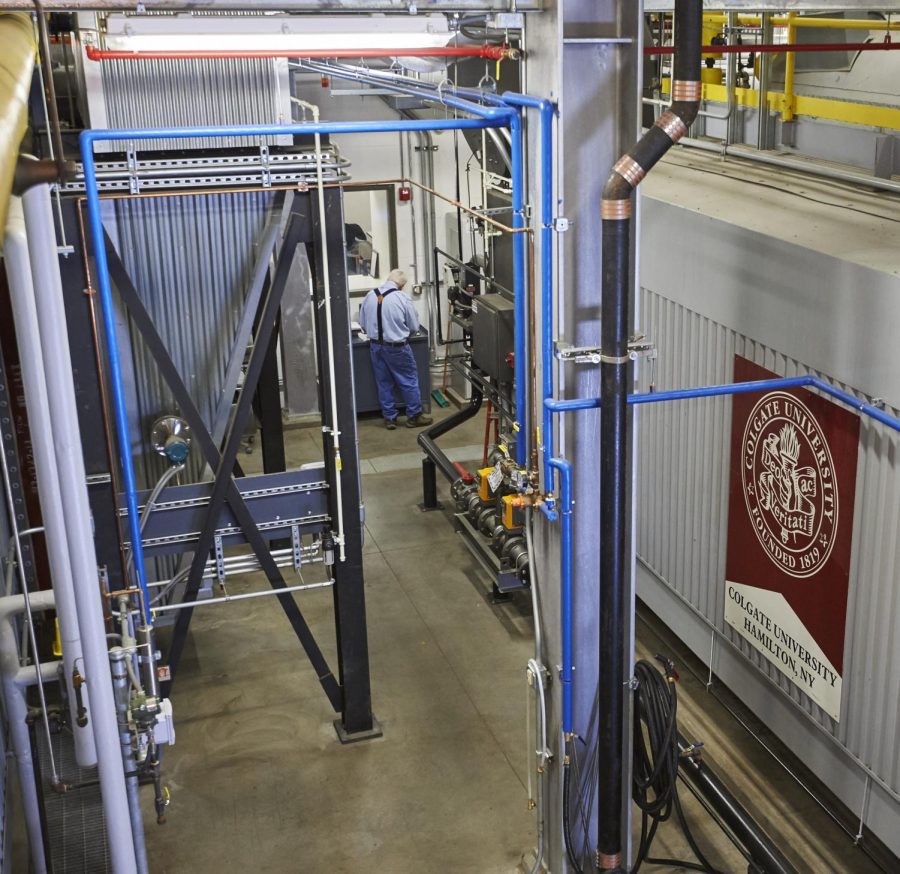Does Colgate Hide Behind Its Carbon Neutrality?
As boasted on their Sustainability webpage, Colgate was “the first higher education institution in New York State to achieve carbon neutrality.” Since reaching this milestone in April 2019, what notable progress has been made on campus that would suggest Colgate’s carbon neutrality is anything less than a greenwashing marketing tool? The COVID-19 pandemic naturally put Colgate’s commitment to sustainability on the back burner as the public health crisis reached its peak. On-campus waste soared as single-use plastics became the norm. Now that things are finally returning to “normal”— an uncertain declaration considering the state of the ongoing pandemic — will Colgate continue to ignore their unsustainable practices with the reassurance that their carbon offsets will make up for bad behavior?
In my time at Colgate, I have seen few attempts to actively promote more sustainable practices among students. Besides the occasional, “Remember… these come from trees” stickers randomly placed on toilet paper dispensers or the stickers in dorm showers stating that five minutes equates to 12 gallons of water, there has been a lack of genuine interest in changing student behaviors in a meaningful way. Quite frankly, Colgate makes it very difficult for students to maintain a sustainable lifestyle. Single-use products have taken over the O’Connor Campus Center (the Coop), the Hieber Café (Chobani) and Donovan’s Pub with no indication that this trend will reverse anytime soon. Not only is plastic an inevitable part of most students’ days, but the lack of adequate vegetarian and vegan options is especially frustrating. Students seeking to reduce their carbon footprints by eating less meat are up for quite the challenge in Colgate’s dining halls, both in terms of variety and overall sustenance.
Speaking more generally, the culture on campus is not conducive to environmentally sustainable practices. Anyone who has seen the line to pick up packages can easily deduce how heavily students rely on Amazon and other rapid online ordering services to fulfill their “needs.” The reality is that students often find themselves taking weekly trips to Syracuse or New Hartford, either for more food options or for the shopping scene. Since personal vehicles are the easiest way to make spontaneous trips like these happen, there has been an unprecedented number of student-owned cars on campus in recent years. Rather than seeking to provide solutions or alternatives to these carbon-guzzling pitfalls, Colgate continues to turn a blind eye to its students’ behaviors.
With this in mind, what does it truly mean to be carbon neutral? In the case of Colgate, carbon neutrality has acted as an excuse for the University to ignore the deeper roots of the issue. Beyond addressing the culture of waste that has infected the campus, Colgate continues to invest in the fossil fuel industry despite the push among colleges and universities to divest from nonrenewable resources entirely. After Harvard University’s groundbreaking announcement last September stating their intentions to divest from fossil fuels, the floodgates opened as other prestigious institutions sought to follow their lead. While most of the Ivy League schools and many “Little Ivies” have at least acknowledged their responsibility to divest from fossil fuels, Colgate’s sustainability push stalled with the achievement of carbon neutrality. Middlebury College, an equally competitive liberal arts institution in Vermont, has been fighting for divestment since mid-2019 and has plans to be 100% free from fossil fuel companies by 2034.
Colgate’s approach to on-campus education during the pandemic resulted in application rates skyrocketing and a nationwide recognition of the University’s commitment to health. Although this positive media attention was the perfect opportunity for Colgate to make other newsworthy changes (like a commitment to fossil fuel divestment, maybe?), the momentum fizzled in tandem with University’s unconventional 2020-2021 school year. With 2023 rapidly approaching, what is Colgate’s excuse now? The current student body has no memory of the buzz around sustainability and carbon neutrality at Colgate, nor is there any suggestion that an achievement of this caliber will occur within most students’ four years in Hamilton.
Speaking from experience, it is difficult to be an Environmental Studies student at Colgate when the University fails to practice what they preach. I came to Colgate expecting a campus that prioritized sustainability given how proudly the University touted its carbon neutrality. Now I spend the majority of my year living in a county that does not even allow for the recycling of plastic cups. As fossil fuels continue to be invested in, used and wasted on campus, our reliance on carbon offsets expands with no alternative solution in place. When will Colgate address the problem from within rather than pushing our problems onto already vulnerable populations? Time is not on our side.









